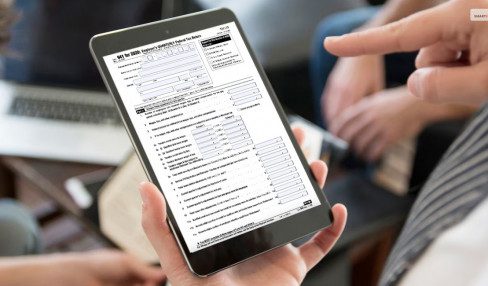The Intricate Dance OF Finance AND Bookkeeping
20 July 2023
5 Mins Read

toc impalement
In the digital age we live in now, the relationship between finance and paperwork has become more important for companies. Any group that wants to be successful and grow must be able to handle financial activities and keep accurate records.
Let’s delve into the details of finance and Bookkeeping Toronto, showing how important they are, how they vary, and what part they play in running a business.
The Purpose Of Finance
Finance is all about how a company handles its money, assets, and investments. It means planning, getting, and distributing money to help the company reach its goals. Financial tasks include budgeting, forecasting, and looking at investment possibilities to make the most money and keep finances stable.
Financial Management
Financial management involves using resources well, evaluating risks, and making financial decisions. It includes things like planning, analyzing, and keeping track of money. Effective financial management helps businesses maximize their cash flow, preserve their debt under control, and make smart choices about where to spend.
Types Of Financial Statements
Financial statements are vital tools for evaluating a company’s economic performance. The three primary statements are:
- Income Statement: This statement summarizes revenue, expenses, and profit over a specific period.
- Balance Sheet: It provides a snapshot of the company’s financial position at a particular time, showcasing its assets, liabilities, and equity.
- Cash Flow Statement: This statement tracks the cash inflows and outflows, offering insights into the liquidity and cash management of the business.
The Fundamentals Of Bookkeeping
What is Bookkeeping?
Bookkeeping is the process of recording, organizing, and sorting financial activities in an orderly way. It ensures that economic data is correct and reliable, making it possible to make financial accounts and reports. Bookkeepers use tools like journals, ledgers, and software to keep detailed records of income, spending, assets, and bills.
The Importance of Bookkeeping
All businesses need to keep accurate books, no matter how big or small. It gives owners and managers a clear picture of their finances, so they can keep track of their financial health, measure success, and make choices based on accurate information. Proper accounting also makes sure that tax rules are followed and makes it easier to do checks and financial analyses.
Double-Entry Bookkeeping
Modern accounting is built on the idea of double-entry bookkeeping. It is based on the idea that every financial transaction has two equal effects but different on two accounts. This method keeps the balance between assets, bills, and property, which makes financial records more accurate and reliable.
Finance vs. Bookkeeping: Key Differences

Scope and Focus
Finance is about making decisions about investments and the general financial health of a company. It looks at the big picture and analyzes financial goals for the long run. On the other hand, bookkeeping is all about the day-to-day transactions of money, keeping records, and making reports.
Timeframe
Finance is all about planning and analyzing for the future, and it often looks ahead months, years, or even decades. On the other hand, bookkeeping is about keeping track of past and present activities and ensuring that financial data is correct and full in real-time or at regular intervals.
Analysis and Decision-Making
Finance includes analyzing financial data to make strategic choices, evaluate investment possibilities, and control risk. It takes knowledge of financial markets, economic trends, and how an industry works. Even though it gives the necessary information, bookkeeping is mostly about organizing and properly recording financial activities.
The Symbiotic Relationship
Collaboration and Integration
Finance and paperwork are two parts of a company that works together. When the finance and bookkeeping teams work together well, they can ensure that true financial data is available for research and decision-making. Integration that works well lets financial workers use accurate business records and turn them into useful insights.
Impact on Business Performance
A business needs a strong finance and bookkeeping system to stay financially healthy and stable. It helps companies track their income, control costs, and make the best use of their money. Finance and bookkeeping directly affect a company’s success by giving information about how to make money, keep costs down, and handle cash flow.
Leveraging Technology
Technology changes have changed how money is handled and how books are kept. Automation tools, cloud-based software, and AI solutions have made processes faster, more accurate, and less prone to human mistakes. Using these technologies allows companies to spend more time researching and making decisions instead of doing routine chores like entering data.
The Future of Finance and Bookkeeping
Automation and Artificial Intelligence
Automation and AI will continue to change how money is handled and how books are kept. Computers will take care of routine chores like data entry, reconciliation, and report-making. It will give financial workers more time to focus on research and making smart decisions.
Enhanced Data Analytics
With more data, they know how to analyze and understand it will be important. Businesses can get useful information from large datasets with the help of advanced data analytics tools and techniques. It will allow them to make choices based on data and find new growth chances.
Evolving Roles and Skillsets
Because of technological changes, the jobs and skills of people who work in banking and bookkeeping will change. They need to learn how to analyze data, model finances, and put technology to use. Professionals in this area must embrace learning for life and adapt to new tools.
Conclusion
In conclusion, finance and banking are important parts of any business. They work together to ensure the company has stable finances, makes good decisions, and has long-term success. Bookkeeping keeps correct records of day-to-day transactions, while finance focuses on long-term planning, making investment choices, and analyzing finances. Businesses can get the most out of finance and paperwork by working together and using technology. It helps them thrive in a business world that is constantly changing and based on data.
FAQs
Q1: Can a small business manage its finances without bookkeeping?
Bookkeeping is essential for any business, regardless of its size. It helps maintain accurate financial records, facilitates decision-making, and ensures compliance with regulatory requirements.
Q2: How often should financial statements be prepared?
Financial statements should be prepared regularly, typically monthly, quarterly, and annually. It allows businesses to track their financial performance and make timely adjustments.
Q3: What are some popular bookkeeping software options available for businesses?
Several popular bookkeeping software options are available, such as QuickBooks, Xero, and FreshBooks. These software tools offer a range of features to streamline bookkeeping processes.
Q4: How can automation benefit finance and bookkeeping professionals?
Automation can benefit finance and bookkeeping professionals by reducing manual tasks, improving accuracy, and freeing up time for analysis and decision-making, ultimately enhancing overall productivity.
Q5: What skills are essential for a finance professional in the digital age?
In the digital age, finance professionals should possess data analysis, financial modeling, technological literacy, and adaptability skills to leverage emerging technologies effectively.
Read Also:


















Comments Are Closed For This Article